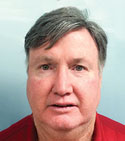Expand crude diet flexibility through comprehensive oil management
One of the primary means for refiners to boost profitability is to improve crude diet flexibility. Many refiners are challenged with increasing their margins while the quality of the global crude oil supply declines.
IP: 10.8.219.96
This is a preview of our premium content. Thank you for your interest—please
log in or
subscribe to read the full article.
The Authors
Arensdorf, J. - Baker Hughes, Houston, Texas
Joseph Arensdorf is the Manager of Separations Technology in the Downstream Chemicals Group at Baker Hughes. In his role, he manages a team that provides global technical services for refinery desalting applications. These technical services include field troubleshooting of desalter operations, new product application trials, laboratory testing and new product development of demulsifiers and other crude additives. He joined Baker Hughes in 2002 and has managed technology groups in downstream chemicals, upstream chemicals, drilling and completion fluids, and research and development. He has authored or co-authored more than 30 technical publications. Dr. Arensdorf holds a BS degree in biology from the University of Illinois and a PhD in environmental toxicology from the University of California at Riverside.
Hoffman, G. - Baker Hughes, Houston, Texas
Gerald O. Hoffman II is the Global Desalting Subject Matter Expert (SME) for Baker Hughes. His expertise in desalting, refining and midstream provides broad-based experience in separations technology. His past roles include various sales and sales management positions. He also worked in technical management for more than 15 years prior to becoming a desalting SME. Mr. Hoffman has 36 years of industry experience, and holds two patents in the solids removal area. He received his BS degree from the University of Louisiana in 1981 and an MBA from the University of Houston in 1985.
Related Articles
From the Archive








Comments